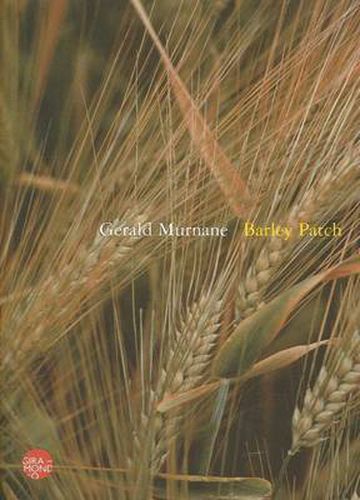Readings Newsletter
Become a Readings Member to make your shopping experience even easier.
Sign in or sign up for free!
You’re not far away from qualifying for FREE standard shipping within Australia
You’ve qualified for FREE standard shipping within Australia
The cart is loading…






Often mentioned as an author in contention for the Nobel Prize, Gerald Murnane is regarded by many as Australia’s most innovative and important writer of fiction.
Barley Patch, Murnane’s first new work of fiction in fourteen years, written after a period in which he had thought he would never write fiction again. Appropriately, the book begins with the question, Must I write? What follows is a remarkable account of the images that have appeared in the author’s mind during a career of over thirty years as a reader and writer.
$9.00 standard shipping within Australia
FREE standard shipping within Australia for orders over $100.00
Express & International shipping calculated at checkout
Often mentioned as an author in contention for the Nobel Prize, Gerald Murnane is regarded by many as Australia’s most innovative and important writer of fiction.
Barley Patch, Murnane’s first new work of fiction in fourteen years, written after a period in which he had thought he would never write fiction again. Appropriately, the book begins with the question, Must I write? What follows is a remarkable account of the images that have appeared in the author’s mind during a career of over thirty years as a reader and writer.
Words are not important. Or rather, they are only important in as much as a reader can find their way ‘across pages of text’ and into landscapes which they move through by virtue of their own imagining. Murnane assumes the voice of a narrator who writes about fictions that will never be written. He tells us something of the ‘characters, so to call them’, which exist in a book he will never write.
The reader writes themselves into these landscapes and meets these characters. Reader, writer and character all exist ‘in a place on some or other far side of fiction where neither reader nor narrator could lay claim to them’. Which one of us is reader or writer or character at any given moment is unclear. Which are truths and which are constructs of the imagination of the details that make up the stories we engage with is also unclear.
Murnane is sharp and quick and sometimes you may find yourself lost in one or another of these landscapes, but not for long, and the adventure of it is exciting and stimulating. With intriguing characters in provocative settings, Murnane examines the nature of reading and writing and the construction of truths and fictions. And somehow, without the use of metaphor or simile, but simple transparency, he approaches the underside of these concepts, the heart of the matter, the magic of the thing that is storytelling.